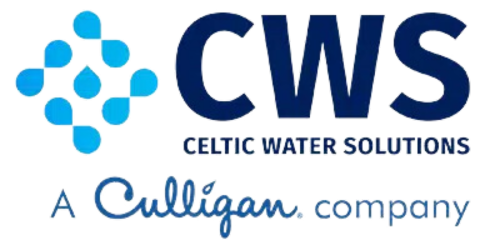As energy prices continue to rise, homeowners and businesses alike are feeling the pinch. Amidst the search for practical and sustainable ways to reduce energy consumption, one solution is often overlooked: soft water. While it’s commonly praised for benefits like shinier hair and cleaner dishes, its real game-changing effect lies in boosting boiler efficiency and driving down energy bills.
Understanding Soft Water and Hard Water
Hard water is water that contains high levels of minerals, primarily calcium and magnesium. These minerals cause limescale buildup inside appliances and heating systems. In contrast, soft water has been treated to remove these minerals, typically through a process called ion exchange using a water softener.
The presence or absence of these minerals can have a dramatic effect on the efficiency of boilers, water heaters, and plumbing systems.
The Impact of Hard Water on Boiler Efficiency
When hard water is heated, the minerals within it precipitate out and form limescale deposits on heat exchangers, pipes, and internal components of boilers. According to the Energy Saving Trust, just 1mm of limescale can reduce boiler efficiency by up to 7%. Over time, this not only increases energy use but also:
-
Shortens the lifespan of the boiler
-
Leads to frequent maintenance and repairs
-
Increases carbon emissions
-
Causes poor heating performance in radiators and taps
Even top-tier boilers can quickly become inefficient if operated with hard water.
How Soft Water Enhances Boiler Efficiency
Switching to soft water can transform the performance of a heating system. Here's how:
1. Prevention of Limescale Build-up
Soft water contains virtually no calcium or magnesium, which means limescale cannot form. Boilers and heating systems stay clean, enabling them to operate at peak efficiency.
2. Improved Heat Transfer
Without scale acting as an insulating barrier, heat exchangers transfer warmth more effectively. This means less energy is required to heat your water, delivering significant energy savings over time.
3. Extended Appliance Lifespan
Soft water reduces internal wear and tear caused by mineral buildup. Boilers, kettles, washing machines, and dishwashers last longer, cutting replacement costs and lowering your carbon footprint.
4. Optimized Water Pressure and Flow
Limescale restricts water flow and pressure. With soft water, your pipes stay clear, ensuring stronger, more consistent heating.
Soft Water Energy Savings: Real-World Data
An independent study by the WQA (Water Quality Association) revealed that water heaters using soft water maintained efficiency levels close to 100% over 15 years, compared to a sharp drop in those using hard water. Furthermore:
-
Gas water heaters using soft water had 24% greater efficiency than those using hard water.
-
Electric water heaters showed up to 30% energy savings over the same period.
When you consider that heating water accounts for over 18% of an average household’s energy bill (according to Energy.gov), these figures are financially significant.
Lower Carbon Footprint with Soft Water
By using soft water, your boiler burns less fuel to achieve the same output. This means fewer greenhouse gases are emitted. For eco-conscious homeowners, soft water is a smart way to contribute to environmental goals while reducing utility costs.
According to Carbon Trust, energy-efficient appliances and water systems are a core strategy in carbon reduction planning. Soft water enables your boiler to function closer to its design specifications, maximizing efficiency and minimizing waste.
Case Study: Irish Homes & Energy Costs
Ireland has some of the hardest water in Europe, especially in regions like Dublin, Cork, and Limerick. As heating bills surge, more Irish homes are turning to water softeners to improve energy efficiency. One local provider, Celtic Water Solutions, reported that clients with softeners installed saw a 10–15% reduction in heating costs within a year.
Additional Cost Savings with Soft Water
The benefits extend beyond the boiler:
-
Fewer plumbing callouts for descaling and repairs
-
Reduced detergent and soap use, as soft water lathers more efficiently
-
Longer-lasting clothing and linens due to reduced fabric wear
These ongoing savings make soft water a long-term investment rather than just a luxury.
Installation and ROI of Water Softeners
Installing a water softener can seem like an upfront cost, but the return on investment (ROI) is often realised in just 2–3 years, thanks to the combination of:
-
Lower energy bills
-
Extended boiler and appliance lifespan
-
Reduced maintenance costs
Modern water softeners are compact, efficient, and designed for minimal maintenance. For homes with combi boilers, models like the Minimax M3 are ideal because they require no electricity and can handle varied flow rates efficiently.
Conclusion: Why Soft Water Is a Must for Boiler Efficiency
As energy prices rise and environmental awareness grows, switching to soft water is one of the most effective and immediate ways to protect your boiler, reduce your energy bills, and lower your carbon footprint. It’s not just about comfort—it’s about sustainable and cost-effective living.
If you live in a hard water area and haven’t yet considered installing a water softener, now is the time to act. Your boiler—and your wallet—will thank you.

